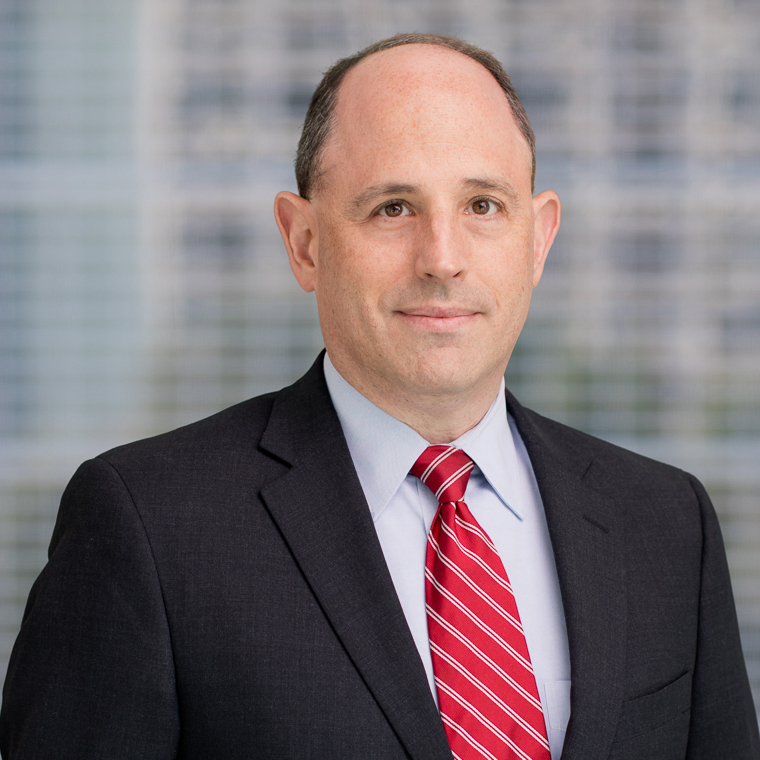Earlier this month, the Supreme Court ruled unanimously in Kokesh v. SEC1 that a claim for disgorgement arising from the violation of federal securities law constitutes a “penalty” for purposes of the general statute of limitations provision in 28 U.S.C. § 2462. That provision imposes a five-year limitation on any “action, suit or proceeding for the enforcement of any civil fine, penalty, or forfeiture, pecuniary or otherwise.” Because § 2462 applies to actions brought by any government entity, the Court's recent decision could have significant implications not only for enforcement actions by the Securities and Exchange Commission (SEC), but for all financial regulatory agency actions seeking disgorgement as a remedy for past misconduct.
The Decision
The Court looked to two principles in determining whether SEC disgorgement is a “penalty” for purposes of § 2462. First, the Court held that SEC disgorgement is a penalty because it is meant to address a wrong to the public, not an individual investor. Indeed, various courts—as well as the United States Government—have characterized disgorgement in SEC cases as a remedy for “harm to the public at large”2 and as “an effective deterrent to future violations.”3
Second, the Court held SEC disgorgement is a penalty because a primary purpose of disgorgement is deterrence—an inherently punitive goal. The Court rejected the Government's contention that SEC disgorgement is “remedial” and simply seeks to “restore the status quo.” Although disgorged funds are sometimes distributed to affected individuals, this distribution is discretionary, and “courts have required disgorgement 'regardless of whether the disgorged funds will be paid to . . . investors as restitution.'”4 In short, the Court concluded, because disgorgement in SEC cases operates as punishment for violations of public laws rather than compensation for private wrongs, the disgorgement sanction “bears all the hallmarks of a penalty.”5
Implications
The Kokesh decision has significant implications both for SEC actions and for actions by other federal financial regulators.
For one, the Court's decision was categorical: SEC disgorgement is a “penalty” under § 2462 even if used to compensate individual victims and restore the status quo. The decision will accordingly put pressure on the SEC to conduct investigations and bring actions promptly, and seems likely to increase agency aggressiveness in seeking and renewing tolling agreements. Agencies may also seek to devise alternative approaches—such as use of the “continuing violation” doctrine—to avoid application of § 2462.
In addition, although Kokesh addressed disgorgement only “as it is applied in SEC enforcement proceedings,” its rationale could apply equally to disgorgement sought by other financial regulatory agencies. Like the SEC, these agencies can seek disgorgement through courts' “inherent equity power to grant relief ancillary to an injunction,”6 but they can also seek disgorgement using their statutory authorities. The Consumer Financial Protection Bureau (CFPB) is expressly authorized by statute to seek disgorgement as a remedy.7 And under 12 U.S.C. § 1818(b), the Federal Reserve, the Office of the Comptroller of the Currency, and the Federal Deposit Insurance Corporation can order institutions subject to cease-and-desist proceedings to take “affirmative action”—including the provision of “restitution” or “reimbursement”—in order to “remedy any conditions resulting from any violation” of the laws these agencies enforce.8 It is not uncommon for agencies to seek such remedies beyond the 5-year limitation in § 2462. Kokesh calls this approach into serious doubt.
At a minimum, other agencies will have to distinguish their disgorgement remedies from SEC disgorgement if they hope to get around the limitations period in § 2462. That could be difficult, as existing case law suggests that disgorgement claims by financial regulatory agencies share the characteristics that drove the Kokesh analysis. The Ninth Circuit, for example, recently recognized that the purpose of CFPB disgorgement claims was “not to redress consumer injuries but to deprive wrongdoers of ill-gotten gains.”9 The court described disgorgement as requiring “only a reasonable approximation of profits causally connected to the violation” and found “no basis” for the position that a disgorgement calculation should exclude funds paid by consumers who did not suffer any injury.10
Finally, Kokesh indicates that aggressive agency statute of limitations arguments are likely to be met with skepticism at the Supreme Court. This is the Supreme Court's second unanimous decision in recent years soundly rejecting agency arguments for a broader statute of limitations. In 2013, the decision in SEC v. Gabelli11 held that no discovery rule applies to the limitations period in § 2462. This trend signals trouble for aggressive statute of limitations arguments advanced by several agencies. For example, federal banking agencies have long claimed that no limitations period governed administrative proceedings under the Federal Deposit Insurance Act12—a position the DC Circuit has rejected to the extent the agency's claim implicates § 2462.13 Similarly, the CFPB has taken the position that no statute of limitation applies where the agency proceeds administratively.14 The only court to address this argument ruled against the agency.15 At a minimum, applying § 2462 to claims for disgorgement would serve as a significant constraint on the financial regulatory agencies' ability to avoid statute of limitations constraints.
1 No. 16-529, 581 U.S. __ (slip op.) (Jun. 5, 2017).
2 Op. at 8-9 (quoting Br. for the United States at 22).
3 Op. at 11 (citing SEC v. Texas Gulf Sulphur Co., 312 F. Supp. 77, 91 (SDNY 1970), aff 'd in part and rev'd in part, 446 F. 2d 1301 (2d Cir. 1971); see also Op. at 11 (“The primary purpose of disgorgement orders is to deter violations of the securities laws by depriving violators of their ill-gotten gains.” (quoting SEC v. Fischbach Corp., 133 F. 3d 170, 175 (2d Cir. 1997))).
4 Op. at 12 (quoting Fischbach Corp., 133 F. 3d at 175).
5 Op. at 12.
6 Texas Gulf Sulphur Co., 312 F. Supp. at 91. The Federal Trade Commission claims similar authority. See, e.g., F.T.C. v. Cephalon, Inc., 100 F. Supp. 3d 433, 439 (E.D. Pa. 2015) (ruling that “the FTC is permitted to seek disgorgement in cases brought pursuant to Section 13(b) [of the FTC Act]”).
7 12 U.S.C. § 5565.
8 12 U.S.C. § 1818(b)(6).
9 Consumer Fin. Prot. Bureau v. Gordon, No. 12-6147, 2013 WL 12116365, at *5 (C.D. Cal. June 26, 2013), aff'd in part, vacated in part, 819 F.3d 1179 (9th Cir. 2016).
10 Consumer Fin. Prot. Bureau v. Gordon, 819 F.3d 1179, 1195–96 (9th Cir. 2016). It appears the CFPB does not dispute this characterization of disgorgement or the implication that § 2462 therefore applies to the remedy. In the past, the agency has taken the position that “no statute of limitations applies” when it proceeds administratively, regardless of the remedy sought. See Brief of Respondent Consumer Financial Protection Bureau, PHH Corp. v. CFPB, 839 F.3d 1, 50 (D.C. Cir. 2016), reh'g en banc granted, order vacated (Feb. 16, 2017). Following the Kokesh decision, however, the CFPB submitted a notice of supplemental authority in PHH acknowledging that “the five-year limit in 28 U.S.C. 2462 applies . . . to disgorgement, which is the monetary remedy that the Bureau imposed.” See id., Letter Pursuant to FRAP 28(j) (June 7, 2017).
11 133 S. Ct. 1216 (2013).
12 See, e.g., OCC Interpretive Letter, 1977 WL 23261 (Oct. 6, 1977) (“the Comptroller is not restricted by any statute of limitations under either the Truth in Lending Act or [the FDI Act].”).
13 Proffitt v. FDIC, 200 F.3d 855, 860 (D.C. Cir. 2000).
14 PHH Corp. v. CFPB, 839 F.3d 1, 50 (D.C. Cir. 2016), reh'g en banc granted, order vacated (Feb. 16, 2017).
15 Id. at 50.

